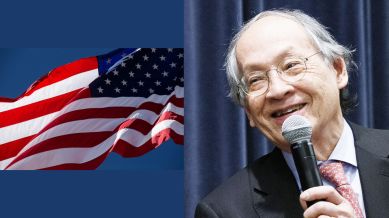Who is Arthur Sze, the new US poet laureate?
Arthur Sze, a Pulitzer Prize–winning poet and translator, has been named America's 25th poet laureate.

Arthur Sze, the Pulitzer Prize-winning poet and translator whose work has long traced the intersections of cultures, histories and landscapes, has been named the 25th poet laureate of the United States. He succeeds Ada Limón, who concluded a three-year tenure.
At 74, Sze brings to the role more than five decades of writing and translation. The son of Chinese immigrants, he was born in New York City and has made his home in Santa Fe, N M, for much of his career. His poetry, deeply attuned to environmental change and cultural plurality, is known for sudden shifts in perspective — a single poem may move from the American Southwest to ancient China to Jefferson’s Monticello, binding disparate images into a startlingly coherent vision.
Sze is the author of 12 books of poetry and a noted translator of classical Chinese verse. His honors include the National Book Award for Sight Lines, the Jackson Poetry Prize, the Ruth Lilly Poetry Prize, and a lifetime achievement award from the Library of Congress. He has described translation as central to his development as a poet, calling it a way to break down the notion of poetry as inaccessible and to open it to broader audiences.
The position of poet laureate, formally “Poet Laureate Consultant in Poetry,” was established in 1937 and has been held by prominent figures such as Joy Harjo, Louise Glück, Billy Collins and others. Its duties are loosely defined, intended to “raise the national consciousness to a greater appreciation of the reading and writing of poetry.”
Five essential works by Arthur Sze
Sight Lines (2019) — Winner of the National Book Award, a meditation on impermanence and connection.
Compass Rose (2014) — A Pulitzer Prize finalist mapping landscapes of memory and environment.
The Glass Constellation (2021) — A sweeping, career-spanning collection of more than 500 pages.
The Redshifting Web (1998) — A landmark gathering of poems tracing his evolution.
The Silk Dragon: Translations from the Chinese (2001; expanded 2020) — His celebrated work as a translator.
(With AP inputs)